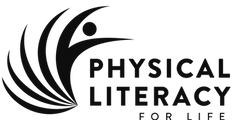
ERASMUS+
SEMINAR
Spotlight on the emotional domain of physical literacy



The seminar is a Multiplier Sports Event of the Erasmus + project, Physical Literacy for Life, where PLnet is a partner. Read more about the Erasmus + project, Physical Literacy for Life. Here you will also find videos about physical literacy and a "training toolbox".
SEMINAR
SPOTLIGHT ON THE
EMOTIONAL DOMAIN
Physical literacy (PL) is a multi-dimensional concept that provides a holistic understanding of movement and physical activity. PL consist of an emotional, a physical and a cognitive domain, which together lay the foundation for the individual's capacity and propensity to participate in movement and physical activities here and now and up through life.
To support an individual's development in physical literacy, it is important that an activity is perceived as meaningful here and now. In a physical literacy approach to physical activity and movement, the individual's feelings and attitudes are thus as central as, for example, the physical competencies in relation to experiencing meaningful participation in an activity. Physical literacy is promoted through its core areas: the emotional, the physical and the cognitive domain while being true to the multidimensionality of PL, ensuring that the effects are synergetic. It is therefore important to know the importance of each of the domains to support a positive development in physical literacy.
This seminar dives into the emotional domain - including intrinsic motivation and self-confidence - to spread knowledge about and create a better understanding of children's feelings and attitudes related to physical activity. This will help researcher in areas of prevention and public health to design effective physical literacy intervention, and it will help practitioners in schools and sports clubs to create learning environments that stimulate the emotional domain in all children.
A viable and commonly applied theoretical framework for understanding children's feelings and attitudes related to physical activity is the self-determination theory. At this seminar, the self-determination theory will be unfolded to understand the psychological mechanisms that affects an individual's inner motivation. It will be discussed what research says about motivation for physical activity and sports participation, as well as how motivation interacts with elements such as motor skills, fitness and knowledge and understanding. Finally, the importance of learning environments, including the role of the coach or teacher, in relation to an individual's motivation for participation in activities will be discussed.
PROGRAM
INTRODUCTION
NIKOS NTOUMANIS
Q&A
COFFEE AND CAKE
GLEN NIELSEN
Q&A
SUMMING UP
SOCIAL ACTIVITY
THANK YOU FOR TODAY
13.05
13.00
13.50
14.05
14.20
15.00
15.20
15.30
16.45

KEYNOTE SPEAKERS

NIKOS NTOUMANIS
Professor of Motivation Science at SDU. His research focuses on factors that optimize motivation and promote optimal performance, psychological well-being, and health-conducive behaviors.
He is a Fellow and Chartered Psychologist of the British Psychological Society, and a Fellow of the UK's Academy of Social Sciences.
Short video: https://www.youtube.com/watch?v=ms0UMz419Ow

GLEN NIELSEN
Associate Professor at the Department of Sport and Nutrition at the University of Copenhagen. His research focuses on children's daily physical activities, motivational factors related to physical activity, inclusion and exclusion in sports, and physical literacy.


